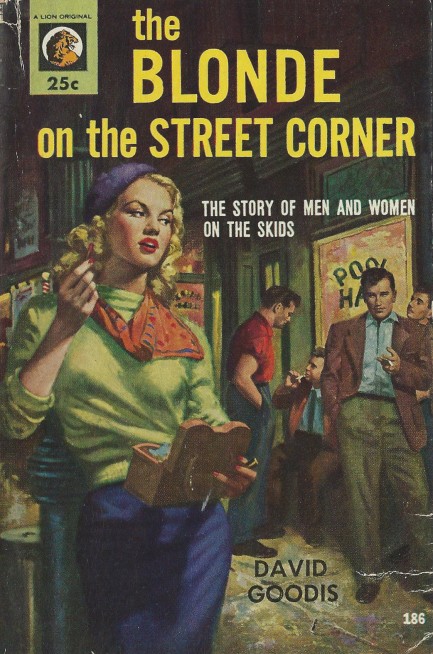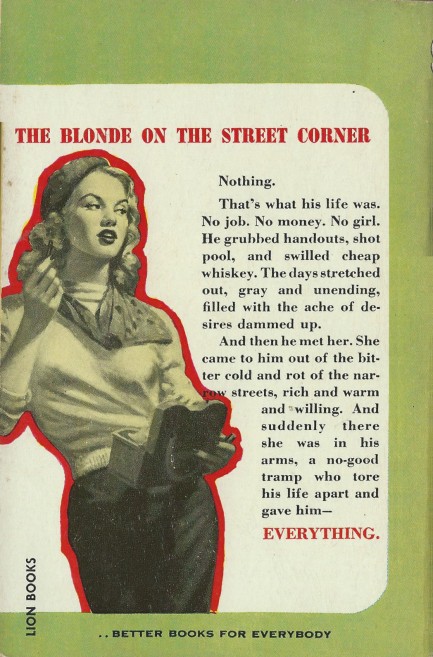| Vintage Pulp | Jul 21 2016 |

What's in the box? Uh, you know, lipstick, gum, cigarettes, the souls of men I consume. The usual.


Above, really nice front and rear cover art for The Blonde on the Street Corner by David Goodis, which was published by Lion Books as a paperback original in 1954. Set in Philadelphia during 1936, the book examines a bunch of guys who have big dreams but no money, no motivation, and no ideas how to escape dead-end Philly. The narrative is basically plotless, like the characters' lives. Talk about a great depression. The cover art, by Robert Maguire, is beautiful but the blonde depicted is nothing like the blonde Goodis writes about. Goodis's blonde is overweight, married, and in her mid-thirties. She does have a sexual aura, though, and certainly fits the mold of a femme fatale. This is considered lesser Goodis, but it's still good enough.




































































